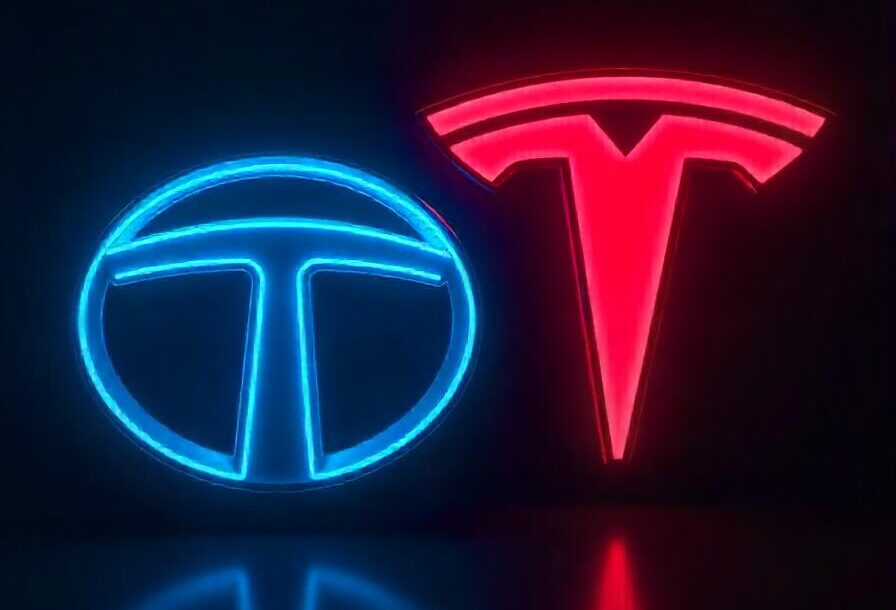
Tesla and Tata Motors: Partners in Progress or Market Rivals?
The latest development in India’s electric vehicle (EV) sector has sparked an intriguing debate—Tata Group, one of India’s most influential conglomerates, is now a key global supplier to Tesla, according to a report by The Economic Times (ET). With multiple Tata subsidiaries providing essential components and services to the American EV giant, this move undoubtedly strengthens India’s presence in the global supply chain. But does it also open the doors for intensified competition between Tesla and Tata Motors? Is this partnership a stepping stone for mutual growth, or will it ultimately create a battleground in the Indian EV space?
Tata’s Role in Tesla’s Supply Chain
Tesla has long been searching for ways to diversify its supply chain, reducing reliance on China and Taiwan. Tata Group’s entry into Tesla’s global supplier network marks a significant milestone in this strategy. Currently, Tata companies are providing critical components, including circuit boards, chips, castings, and EV engineering solutions to Tesla.
This not only enhances India’s standing as a viable EV supply hub but also cements Tata’s reputation as a crucial player in the global automotive ecosystem. With over $2 billion worth of Indian supplies flowing into Tesla’s operations in FY24 alone, the partnership appears to be lucrative for Tata’s subsidiaries. However, the bigger question is how this dynamic will impact Tata Motors, which has its own ambitions in the EV sector.
Tesla’s Manufacturing Plans in India
The company’s interest in setting up a manufacturing base in India has been evident for some time. The company is currently evaluating multiple states, including Gujarat, Maharashtra, Rajasthan, Tamil Nadu, and Telangana, to establish a Gigafactory. The Indian government’s potential incentives, tax benefits, and duty waivers are key factors influencing Tesla’s decision.
If Tesla sets up a factory in India, the country will benefit from increased investments, technological advancements, and job creation. However, this move could also intensify competition in the domestic EV market, especially for Tata Motors, which is already a leader in India’s EV segment.
Tata Motors vs. Tesla: The Competitive Angle
Tata Motors has been at the forefront of India’s EV revolution, with popular models like the Tata Nexon EV and Tata Tiago EV dominating the segment. The company has been aggressively expanding its electric lineup and aims to capture a significant share of India’s growing EV market.
However, Tesla’s potential entry into India as a manufacturer and retailer could pose a challenge to Tata Motors. Here’s how:
1. Brand Power & Market Perception
Tesla’s global dominance and technological superiority give it an edge. While Tata Motors has built a strong reputation in the Indian market, Tesla’s brand appeal among premium buyers could shift consumer preferences.
2. Pricing Strategies
Tata Motors has successfully positioned itself as an affordable EV brand. In contrast, Tesla’s vehicles cater to the premium segment. However, if Tesla introduces locally manufactured, competitively priced EVs, Tata Motors might face pricing pressure.
3. Supply Chain Dynamics
Ironically, Tata’s role as a supplier to Tesla might create a double-edged sword. While the partnership enhances Tata Group’s revenues, it also helps Tesla gain a stronger foothold in the Indian market, potentially to Tata Motors’ disadvantage.
4. Charging Infrastructure & After-Sales Support
Tata Power is already expanding its EV charging network across India. If Tesla builds its proprietary Supercharger network, it could either complement or compete with Tata’s charging infrastructure, influencing consumer decisions.
Collaboration or Competition? The Road Ahead
Despite the apparent competition, there are opportunities for collaboration between Tesla and Tata Motors. Some possibilities include:
- Joint Ventures in Battery Production: Tesla and Tata Chemicals could explore partnerships in battery manufacturing to strengthen India’s EV ecosystem.
- Shared Charging Infrastructure: If both companies align their charging networks, India’s EV adoption could accelerate significantly.
- Technology Transfer: Tesla’s advanced battery technology and autonomous driving capabilities could complement Tata Motors’ existing expertise, leading to innovations in the Indian market.
Final Thoughts: Friend or Foe?
The relationship between Tesla and Tata Motors is complex—while Tata Group benefits from Tesla’s supply contracts, Tata Motors faces the challenge of competing with the American EV giant in its home market. If Tesla establishes local production, the competition will heat up, but if both brands find synergies, India’s EV market could witness unprecedented growth.
Whether Tesla emerges as a friend or a foe to Tata Motors depends on how both companies navigate this evolving landscape. One thing is clear: India’s EV sector is in for an exciting ride!
